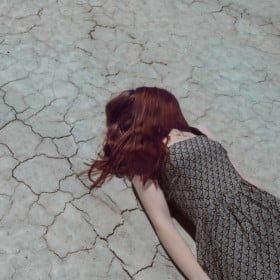Does tea help you sleep?
Tea is one of the most delightfully versatile drinks you’ll ever have.
It’s more than just a beverage associated with the British, or a crucial part of Asian culture. Tea has also been used as a solution for various health problems over the centuries.
The right combination of herbs and leaves will improve your mood, banish stress, reduce discomfort, and even stimulate brain function.
A cup of tea a day keeps the doctor away too. It improves your immune system function and allows your body to withstand infection.
For the countless people around the globe that battle against insomnia each night, tea can also be the ultimate opportunity to fight back against sleep deprivation.
After all, while some blends use natural enzymes to wake you up in the morning, replacing your daily coffee, other teas can have a soothing, almost sedative effect.
Today, we’re going to look at the herbs that you should steep before you sleep, for a better night-time routine.
Let’s get brewing.
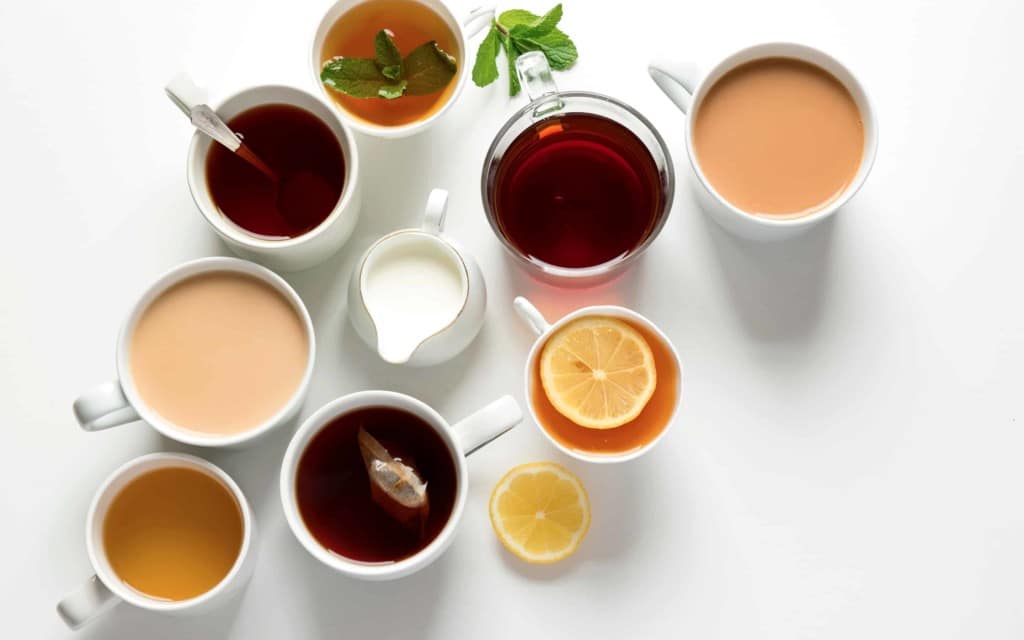
Choosing a tea to help you sleep
The first thing you need to know about tea is that it comes in many different styles.
Not all teas are intended to encourage better sleep. Some of the blends you’ll find on the market today, like Yerba Mate or standard black tea are packed full of caffeine — which keeps you awake.
Herbal tea, on the other hand, is often caffeine-free. The best herbal teas for sleep promote a better night’s rest in a multitude of different ways.
First of all, the temperature of tea is conducive to relaxation. Think of how peaceful you feel after you take a nice hot bath before bed. Tea for better sleep has a similar impact, filling you with a feeling of warmth and comfort.
Part of any effective sleep hygiene routine is finding a strategy that helps you to relax before bed. Filling yourself with warmth while you inhale delicious earthy scents and bask in delightful flavours is a great start.
Another way that tea supports your sleep is by delivering some fantastic natural compounds that trigger chemical reactions in your brain and nervous system. Herbs in some teas can counteract substances like cortisol in your body, which raise your stress levels.
At the same time, these substances also encourage the release of things like dopamine and serotonin, which leave you feeling calmer, and more prepared for sleep.
So, what kind of tea helps you sleep?
Well, that’s a pretty subjective question. Some people will experience a better night of rest when they drink a tea that’s designed to promote relaxation. Others will need something with a stronger sedative effect to tackle problems with insomnia and sleep deprivation.
Fortunately, we’ve created a complete guide to tea that helps you sleep.
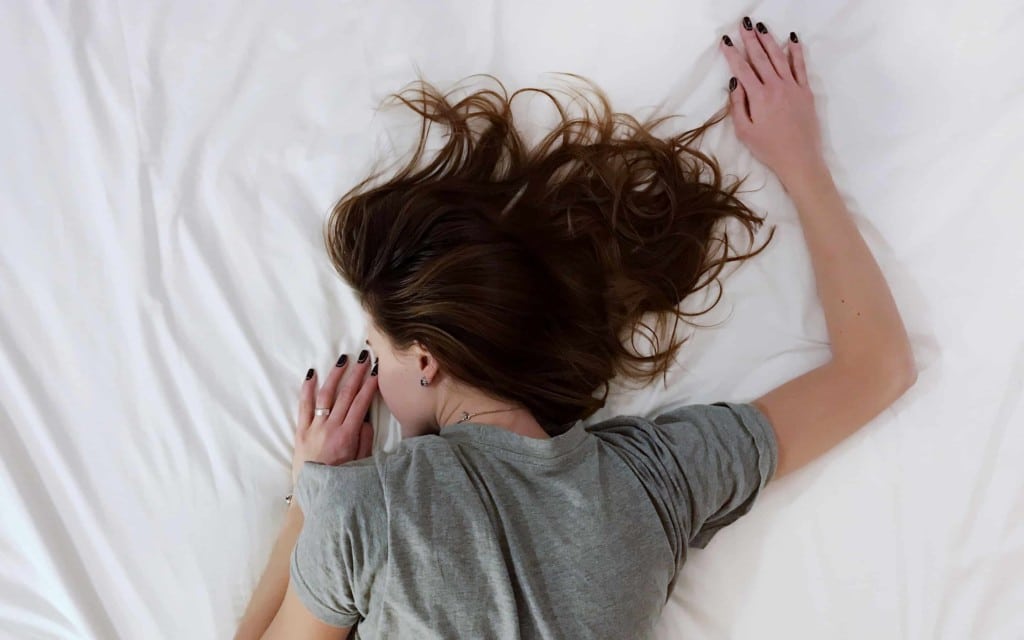
Best tea to drink at night for peace and relaxation
Let’s start simple.
It’s hard to fall asleep when you’re feeling wound up and nervous.
At night, it can be challenging to put the stresses of the day aside and let your mind relax. Fortunately, drinking tea for sleep problems gives you a moment of genuine peaceful reflection that you can use to focus on relaxing and switching off.
Some herbal teas are better at inducing relaxation than others. For instance, research proves that lavender has a calming effect on the nervous system. Lavender is also fantastic at reducing heart rate, skin temperature, and blood pressure. In other words, it gets your body ready for sleep.
On the other hand, valerian interacts with the gamma-aminobutyric acid that regulates impulses in your brain, inducing feelings of calmness, and reducing the physical symptoms of anxiety. Here are just some options for the best tea for inducing sleep through relaxation.
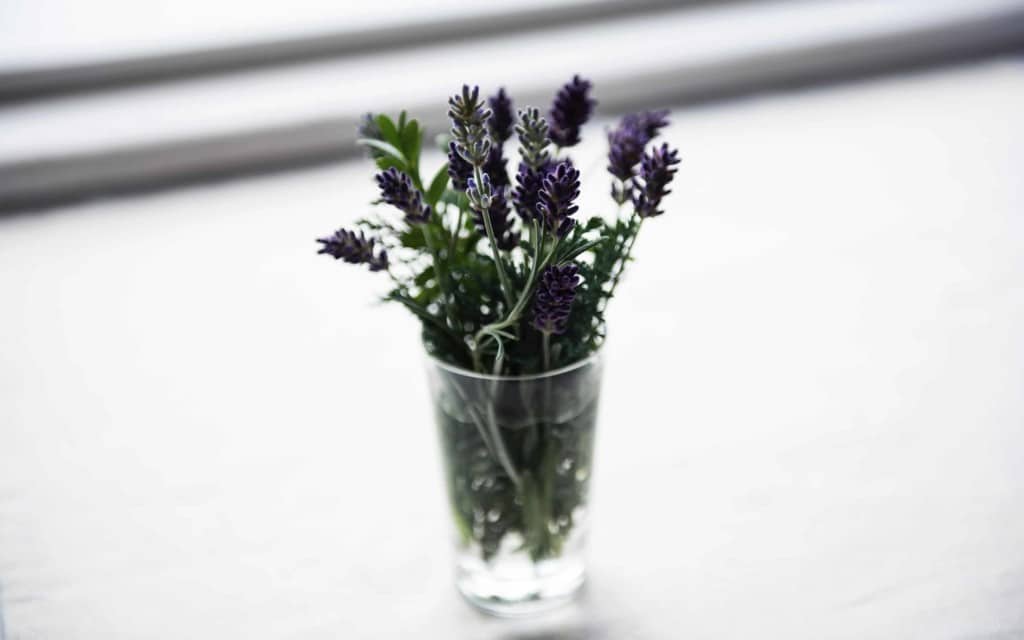
1. Lavender tea
Lavender tea comes from the buds and petals of the Lavandula Angustifolia plant. In some cases, it will create a pinkish purple elixir with a soft, soothing aroma.
Although some people don’t like the flavour of lavender tea, others appreciate its mild, sweet taste. It’s best to avoid mixing this substance with honey and sugars if you want to get the best results for bedtime.
According to a study by the Chronobiology International group, lavender aromatherapy increases your chances of a deep sleep and improves energy levels when you wake up too.
The same survey discovered that exposure to lavender before bed increased slow-wave sleep. Therefore enhancing the amount of restoration your brain can do when you’re snoozing. Make sure you inhale the soothing fragrance whenever you take a sip of this brew.
2. Valerian root tea
When it comes to tea for sleep, valerian is one of the most popular options. It comes from the roots of the Valeriana Officinialis plant, common in both Europe and Asia.
Valerian creates a drink that’s a dull grey colour, and it delivers an enchanting woody scent with an earthy flavour profile. Closer in taste to many standard tea drinks, valerian may be the best tea for sleep if you haven’t used herbal substances to aid insomnia before.
Valerian’s title as one of the best teas for sleep deprivation dates back to the 2nd century when it used to be prescribed for treating anxiety and insomnia.
Studies have found that valerian can be just as effective at melatonin at inducing sleep. This natural remedy has no dangerous side effects, but it can get a little addictive over time. Consider using it sparingly, in combination with another tea that helps you sleep.
3. Passionflower tea
Passionflower is another particularly attractive tea option, often creating beverages that are soft green or purple. Made from the Passiflora Incarnata plant, this substance delivers a very floral and mild taste.
There’s a unique flavone in passionflower tea that can also be found in honey. This component induces calmness, soothes the muscles, and helps the body wind down for rest.
If you’re looking for the best tea to drink at night for physical relaxation, a study from Phytotherapy Research found that one cup of passionflower tea a day helped participants to improve their sleep quality and alleviate common disorders.
Because the sedative effects of this tea aren’t quite as strong as some others listed in this article, it’s safe to drink passionflower every day.
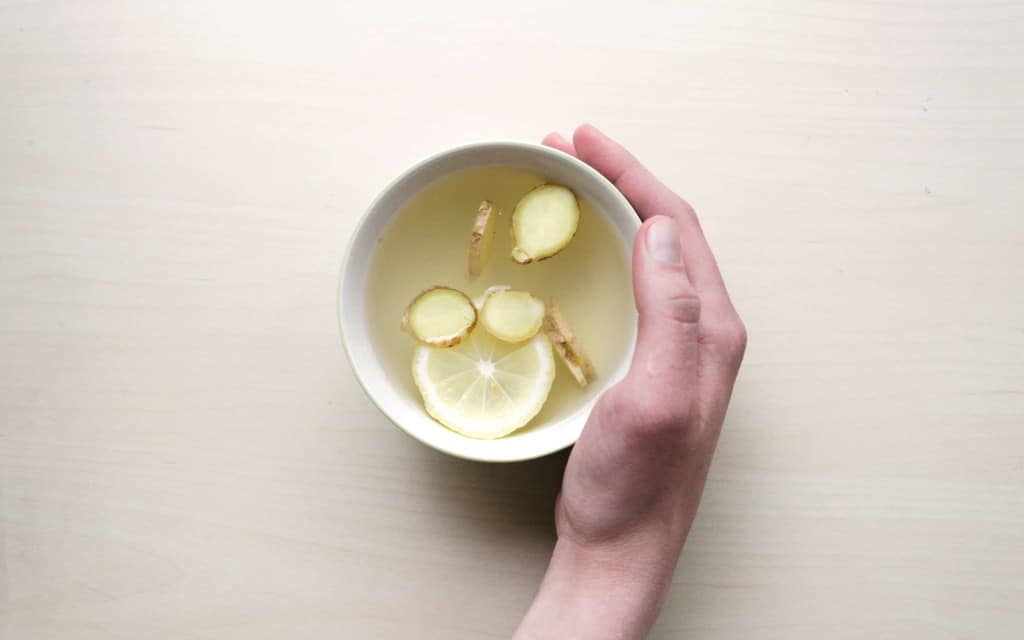
Teas that help you sleep by banishing stress
Insomnia and stress are very closely linked.
The best herbal tea for sleep not only relaxes your body, but it also helps to fight back against symptoms of chronic stress and anxiety. This is particularly important in a world where pressure can come from anything from genetic predisposition to problems at work.
Tea isn’t the only treatment available for stress and anxiety. There are also meditation options available, techniques like CBT, antidepressants, exercise, and more.
However, a nighty night tea for better sleep could give you the restful moments you need to restore and protect your mind as you battle against anxiety.
Here are some of the best teas for restful sleep when you suffer from stress.
1. Chamomile Tea
If you’ve ever considered using tea that makes you sleep before, or you’ve looked into natural substances to reduce stress and anxiety, you probably came across Chamomile. Chamomile tea is an excellent beverage to have in your pantry for a range of reasons. Over the centuries, cultures have used the flower as part of traditional medicine to treat anxiety, stress, and insomnia alike.
A study conducted in 2009 found that chamomile extract can reduce generalised anxiety disorder by working as a mild tranquiliser on the nerves and muscles.
Further research in 2011 also indicates that chamomile is useful in improving feelings of alertness after sleep. Unlike pills and other insomnia remedies, there’s no grogginess the morning after you drink a cup of chamomile.
2. Lemon balm tea
Lemon balm is probably one of the most delicious and refreshing teas to drink if you’re nervous about using herbal sleep aids. As you might expect, it offers a fresh citrusy flavour combined with hints of mint.
Tea made from lemon balm has been available since the middle ages to treat symptoms of anxiety and insomnia. The tea contains compounds that soothe stress and relax muscles, creating the perfect physiological environment for sleep.
Although research into lemon balm tea is ongoing, current studies show that when combined with other sleep aids like chamomile and passionflower, lemon balm can effectively treat sleep disturbance disorders. The compounds in this tea trigger GABA receptors in the brain, creating a state of rest and calm.
2. Peppermint tea
When you’re looking for the best tea for sleep, you might assume that citrusy and minty flavours are more likely to wake you up than help you wind down. However, the opposite is often true.
Peppermint tea drank before bed can significantly improve your sleep, particularly if you usually suffer from stomach issues that have you rushing to the bathroom at night. Peppermint is an excellent de-stressing substance, perfect for reducing inflammation in the body for a more relaxed body and mind.
Studies show that peppermint tea is packed full of helpful compounds that relax the mind before bedtime, and reduce bloating, gas, and other gastrointestinal issues. Since general discomfort can easily keep you awake at night, it’s an excellent tea for sleep deprivation caused by stomach problems.
Additionally, some experts even recommend using peppermint tea to reduce the symptoms of morning sickness during pregnancy. An analysis of 101 pregnant women found that the substance reduced feelings of nausea that kept mothers-to-be awake at night.
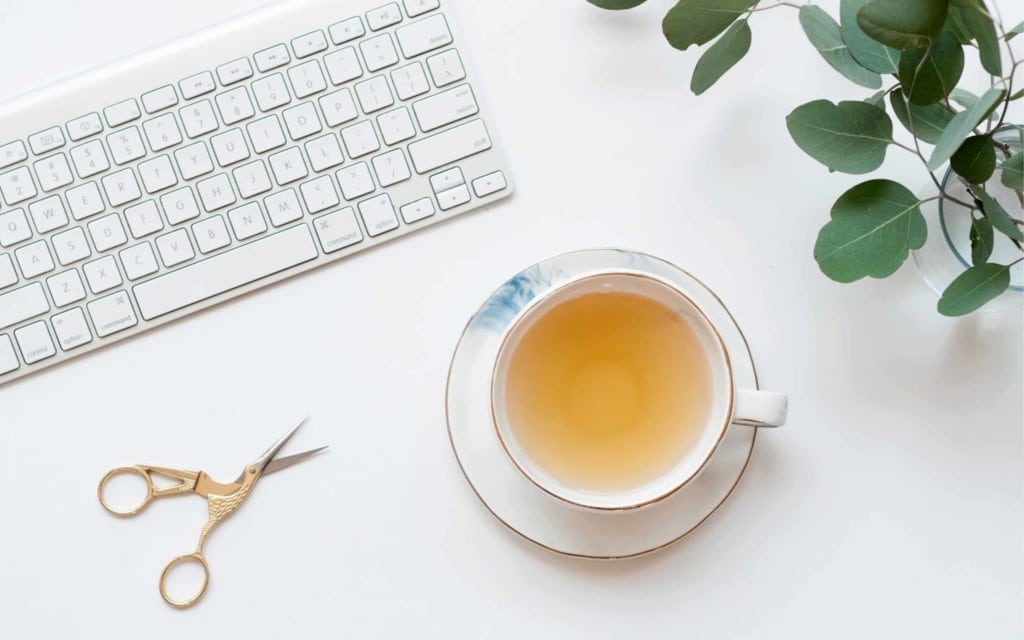
The best herbal tea for sleep and other health benefits
Tea is a fantastic beverage for many reasons.
This warm and refreshing substance isn’t just an effective sleep aid; it’s also a way to eliminate gastrointestinal issues, improve digestion, enhance immune system functioning, and more.
If you want a tea that will simultaneously deliver sweet dreams, and make sure that you wake up feeling fresh and healthy, then here are some great options to consider. Introducing the tea that makes you sleep, and keeps you feeling your best all day long.
1. Ashwagandha root tea
Ashwagandha root tea is a beverage that you’ll find in various parts of Ayurvedic medicine. Throughout the eastern part of the planet, this substance is traditionally used for healing rituals and spiritual support, as it helps to keep your mind and soul balanced.
From a more scientific perspective, people believe that Ashwagandha root can reduce cortisol levels. This means that it’s an excellent tea for restful sleep if you suffer from excessive stress.
According to one study in 2012, Ashwagandha can balance out the “fight or flight” response in the nervous system, leading to up to 28% lower cortisol levels.
2. Lemongrass tea
Not to be confused with lemon balm tea. Both lemon balm and lemon grass have an excellent effect on the mind and body when it comes to encouraging restful sleep. As a tea for sleep deprivation, lemongrass can trigger the release of serotonin — the hormone associated with improving mood and inducing feelings of happiness.
This tea is particularly useful for people who have insomnia caused by depression or feelings of restlessness before bed.
Like lemon balm, this beverage provides a soft citrusy flavour with a crisp and refreshing finish. According to a study in 2009, lemongrass tea is effective at regulating sleep cycles and boosting sleep hygiene. The more you drink this tea, the better the results will be.
3. Decaf green tea
The benefits of green tea have been touted by health experts for centuries. Some people even believe that drinking green tea regularly can improve brain function and make you smarter.
Green tea is also known to burn fat, improve physical performance, and reduce your risk of certain kinds of cancer.
Although even the decaffeinated version of this tea will contain small amounts of caffeine, it shouldn’t affect your sleep unless you’re particularly sensitive to it.
Green tea before bed is delicious and comes with plenty of flavour options, including floral and fruity notes. The drink is brimming with antioxidants, and it’s known for its ability to banish feelings of stress.
According to one study in Japan, participants who regularly drank green tea for 6 consecutive days experienced better sleep efficiency, more extended periods of deep sleep and decreased feelings of exhaustion.
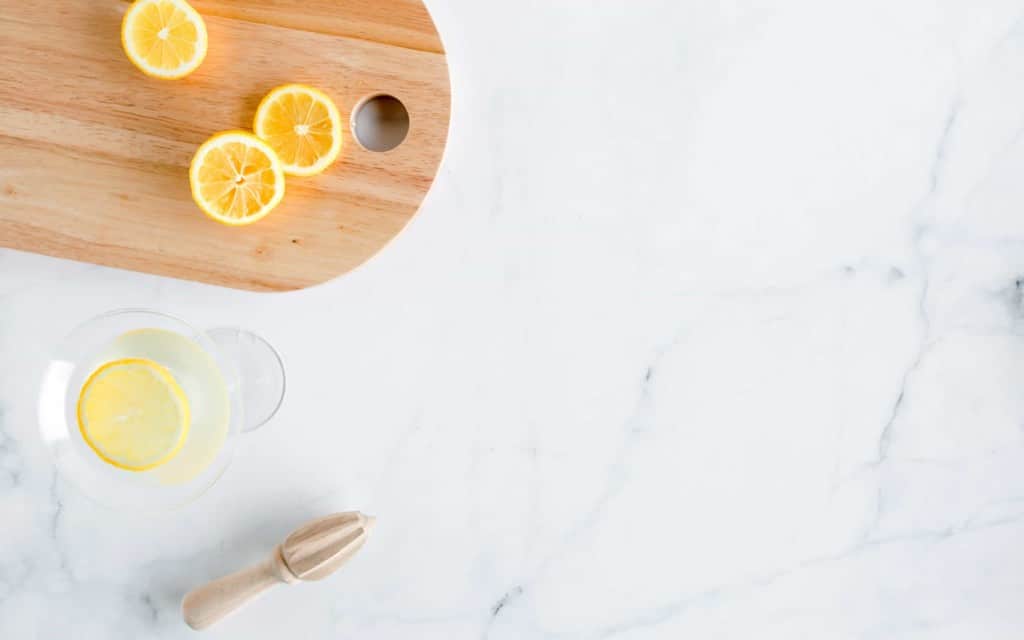
Tea for sleep deprivation: Drinks with stronger sedative effects
If you have a significant sleep disorder or diagnosed insomnia, then you may be looking for stronger tea for your sleep problems.
While almost every herbal tea will help you to achieve a more relaxed and calm state of mind, promoting overall wellness and energy levels, some are more likely to respond well to those with severe issues with sleep hygiene.
Importantly, the best tea for sleep could be any one of the relaxing options that we’ve listed so far. The drinks mentioned below may be slightly stronger sedative choices.
Additionally, because some sedative teas are more addictive than others, it may be worth experimenting with multiple different kinds of tea, rather than relying on one alone.
1. Magnolia bark
When it comes to finding tea for sleep deprivation, Magnolia bark is one of the most highly-renowned options on the market. This flowering plant has been around for more than 100 million years. While the tea is generally made from the bark of the plant, it can also contain some dried stems and flower buds too.
In traditional medicine, magnolia was used in China for various symptoms, including stress, nasal congestion, and abdominal pain. The sedative effect associated with this drink is attributed to the honokiol compound in the bark, which works by modifying the GABA receptors in the brain and inducing sleepiness.
In various studies, honokiol extract and magnolia reduced the time required to fall asleep, while increasing the amount of sleep that patients got.
2. Catnip tea
Catnip might send your feline friends crazy, but it’s actually very relaxing and beneficial to humans. This herbal substance is often recommended for gastrointestinal issues like cramping, gas, indigestion, and stomach pain. Additionally, Catnip could also be the best tea for inducing sleep in some people.
This mild herbal sedative doesn’t have any adverse effects, and it helps to reduce the tension in your mind and muscles so that you can sleep comfortably.
Catnip tea is also useful at overcoming various common conditions such as coughs, viruses, arthritis, and problems with urination. All of those issues can quickly wake you up at night.
3. Linden tea
Finally, linden tea is a beverage made from the linden leaf, flower, and bark of the linden tree. The bark and flower of the linden plant are considered to have the most calming ingredients, and this has made them an excellent sedative option for centuries.
Linden is a particularly great tea for sleep deprivation if you suffer from feelings of anxiety and nerves. Like many of the other options listed so far, linden’s sedative effects aren’t addictive, and there aren’t any dangerous side effects to worry about.
This is one of the many tea choices you could consider if you want to drink the same thing as part of your routine every day.
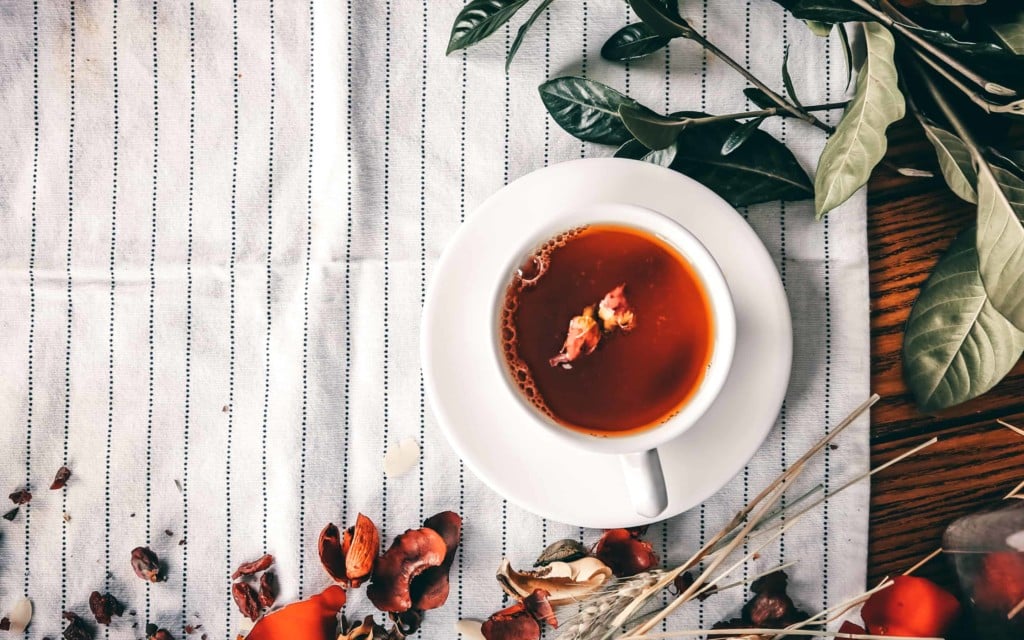
Is it good to drink tea before sleep?
So, does tea help you sleep?
There’s overwhelming evidence in the scientific community to suggest that it does. While not everyone loves tea, it’s one of the world’s most popular beverages. Hence making it an excellent solution for people who want an easy way to improve their sleeping hygiene.
Finding the best tea before bed might prevent you from becoming reliant on pills and supplements.
Tea isn’t just popular in the UK. It’s also present in more than half of the households in America. Tea to help you sleep works in several different ways. The right herbs boost calmness and reduce feelings of anxiety. Simultaneously the warm temperature of the tea relaxes your muscles and induce feelings of peace.
It’s not just the potent compounds in tea that can significantly enhance your sleeping routine. Your tea will become a part of your sleep hygiene strategy.
Sipping on your favourite beverage before you go to bed will be something to look forward to. This means your mind will subconsciously begin to associate the taste and scent of the tea with a signal of sleep time.
Using tea for sleep won’t be the right solution for everyone who experiences insomnia or sleep disorders. Some people will need far more customised strategies to overcome their issues.
However, if you’ve been struggling with poor-quality rest for a while now, it might be worth putting the kettle on and giving one of the options above a try.
These non-caffeinated teas are a delicious, simple, and side-effect-free way to potentially discover a remedy for a full night of sleep.
Siestio. Sleep Matters.
General advice disclaimer
This article contains general tips and advice. However, no diet or exercise program should be started without consulting your physician or other industry professional first. For more information read our full disclaimer here.


